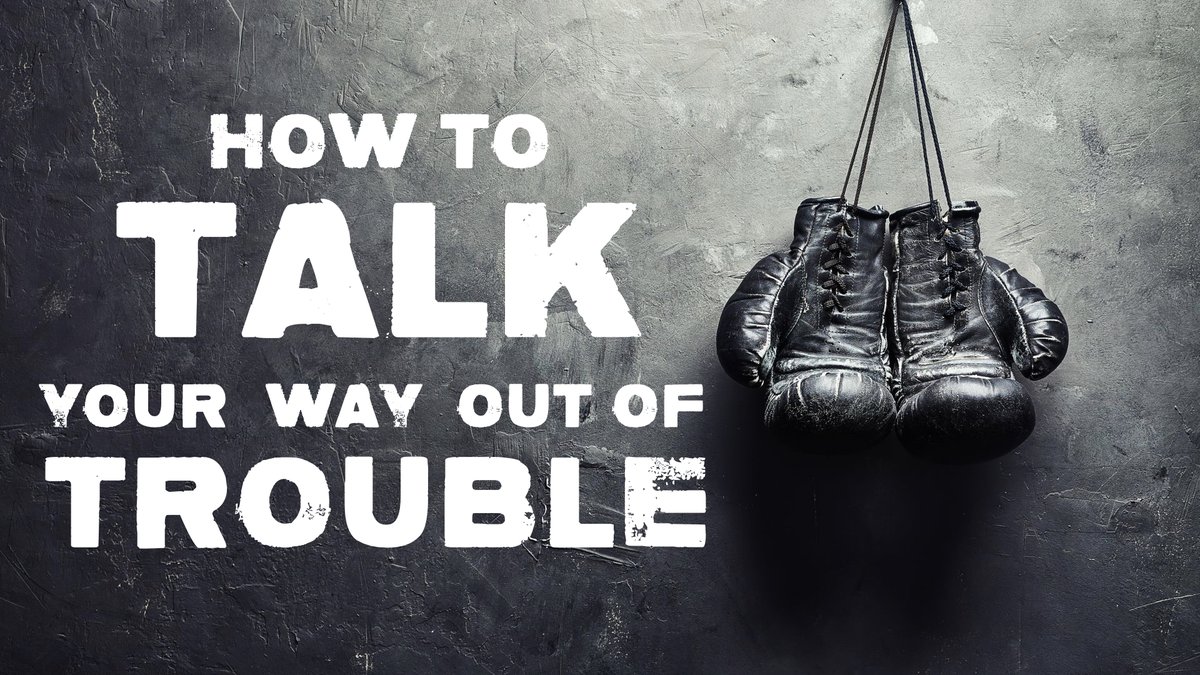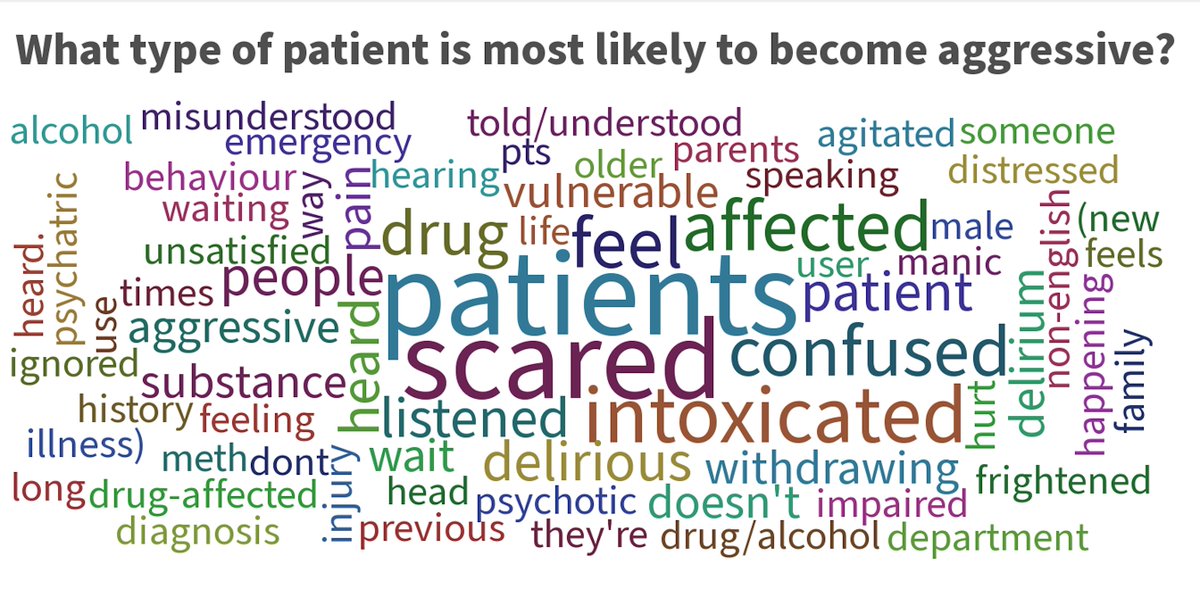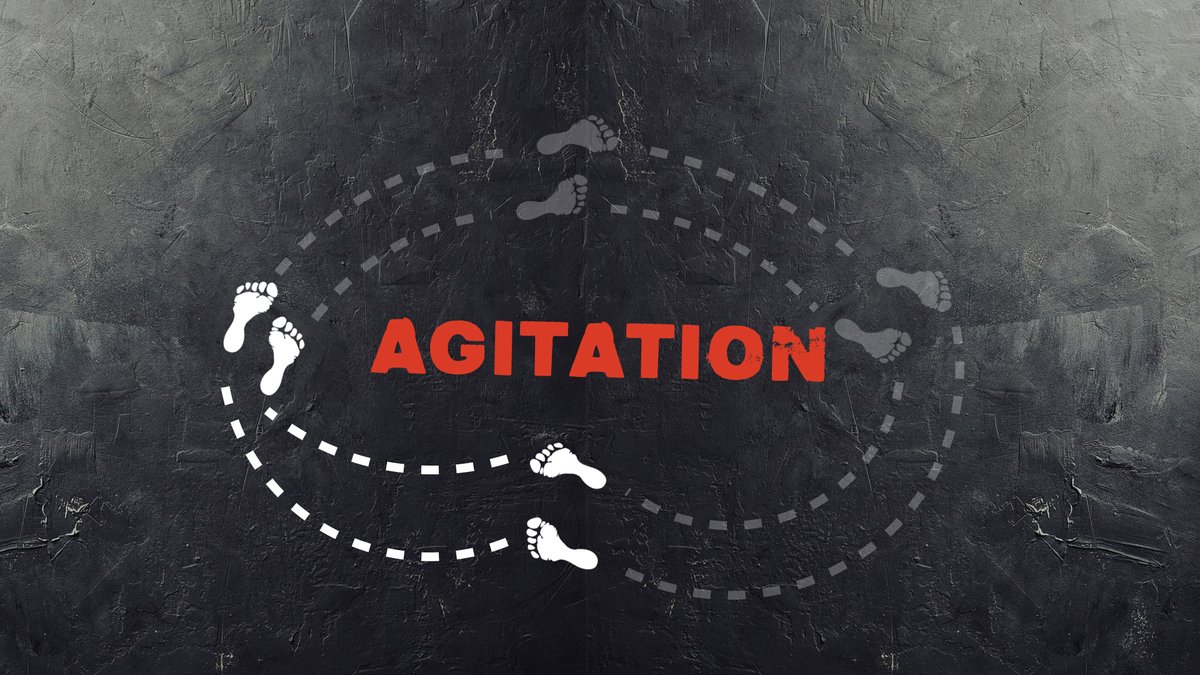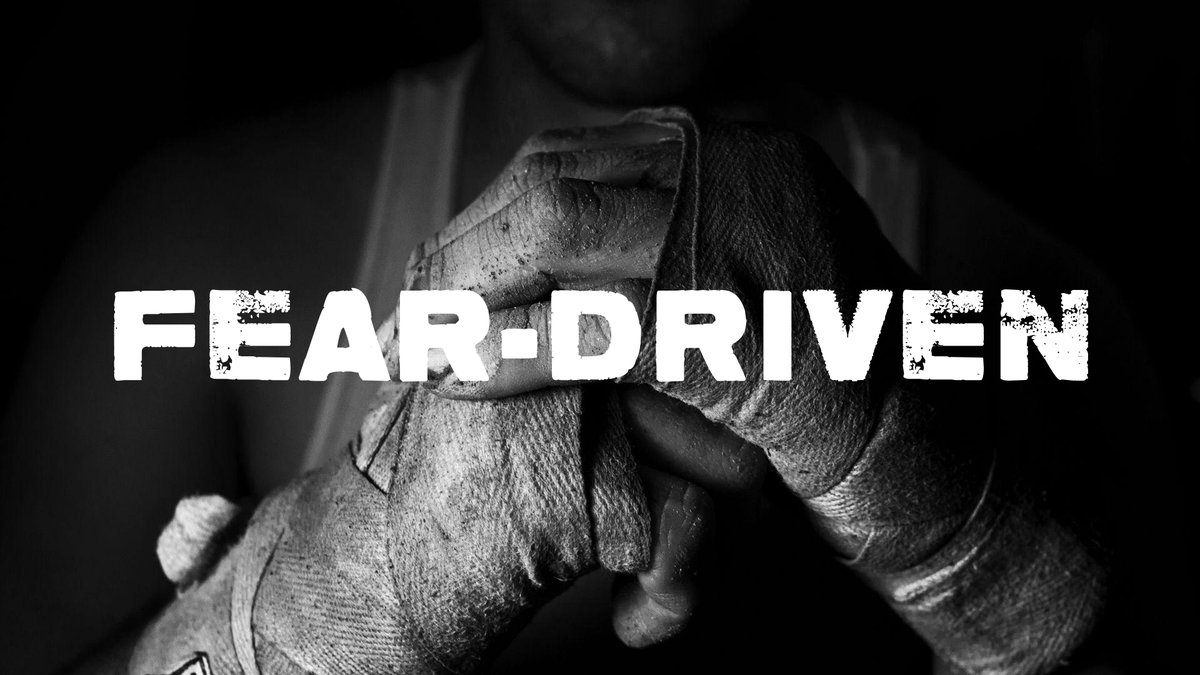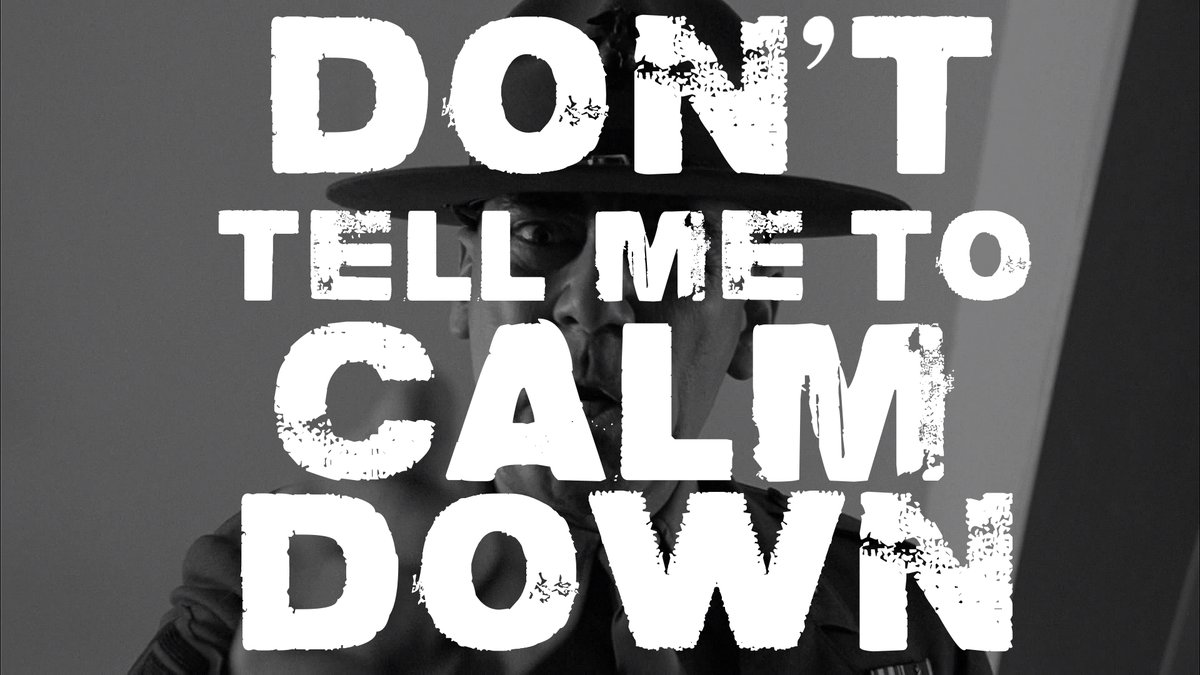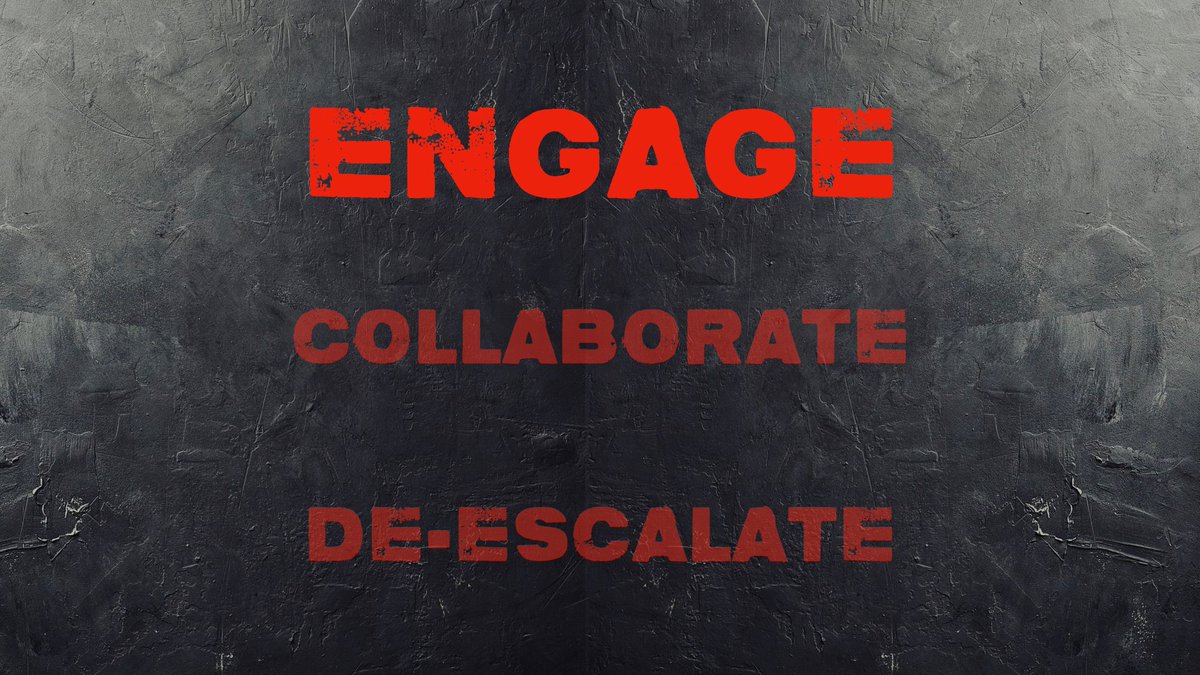It's that time of the year when fresh-faced medical students finally get to see what it is really like on the wards.
Here is my intro talk for @western_health
Here is my intro talk for @western_health
(As an aside this was the real opening slide but... Comic Sans is not going to help anyone engage on Zoom)
This is not a talk on self-defence techniques, or dealing with active shooters, but how to deal with those challenging scenarios that tend to blow up in your face if you are not careful.
So who is prone to violence and aggression in hospital?
I asked the audience and this was their response
I asked the audience and this was their response
Of course, it is a loaded question.
Anyone can become agitated or aggressive but in the most simple terms you could break it down into acute medical illness or acute psychological distress.
Anyone can become agitated or aggressive but in the most simple terms you could break it down into acute medical illness or acute psychological distress.
There is no point trying to reason with someone who has an undetectable blood sugar level (or an ED consultant that has not had their morning coffee). You need to fix the underlying problem.
But some people that we encounter have just been pushed over the edge.
But some people that we encounter have just been pushed over the edge.
Here @western_health we have developed a Behaviours of Concern tool to help us reduce Code Greys. https://onlinelibrary.wiley.com/doi/10.1111/1742-6723.13702
It really does help. But it is better to think about why people get annoyed in the first place.... Time for some psychological theory just for @TwoShrinksPod
Some people display INSTRUMENTAL anger. They have learnt that they can get what they want by being angry.
This is the sort of person that has learned to complain in hotels for free upgrades - if you make the loudest noise you will get looked after.
It's why you 'shouldn't' give in to your toddlers tantrums
It's why you 'shouldn't' give in to your toddlers tantrums
Then there are those that are suffering from IRRITABLE agitation.
Essentially, you (or someone like you) has transgressed their boundaries...
Perhaps it is their personal space, their desire for a cigarette, their sense of autonomy
Essentially, you (or someone like you) has transgressed their boundaries...
Perhaps it is their personal space, their desire for a cigarette, their sense of autonomy
The hardest thing about being a patient is loss of control - being wheeled around the hospital and having no idea where you are going or why, being given tablets and not knowing why.
Explain things to patients (and family)
Most complaints arise as a result of poor communication
Explain things to patients (and family)
Most complaints arise as a result of poor communication
Remember that we are speaking a foreign language (medical-ese) and the majority of people we look after are not fluent.
Take your time and explain (with an interpreter if needed). It will save a lot of hassle in the long run
Take your time and explain (with an interpreter if needed). It will save a lot of hassle in the long run
Then there is FEAR-DRIVEN anger and aggression.
Backed into a corner with no way out, they lash out with their words and (sometimes their fists)
Backed into a corner with no way out, they lash out with their words and (sometimes their fists)
Clearly, telling someone to calm down will not cut it - as anyone that has ever had an argument with their partner will tell you.
Before you can calm them down you need to calm yourself down - try some square breathing to gain some self-control
ENGAGE
Keep yourself at least two arms lengths away, show your empty hands, try not to look threatening
Keep yourself at least two arms lengths away, show your empty hands, try not to look threatening
And introduce yourself, with a question...
"Hello, my name is Andrew. I'm one of the doctors. What is your name?"
You have their attention now.
"Hello, my name is Andrew. I'm one of the doctors. What is your name?"
You have their attention now.
Use short, unambiguous phrases and listen as much, if not more, than you speak.
Use those amazing active listening skills of yours
"So what you are trying to say is..."
"Let me see if I've got that right..."
Use those amazing active listening skills of yours
"So what you are trying to say is..."
"Let me see if I've got that right..."
You are trying to come to a mutually agreeable solution.
This should not be a case of win/lose but win/win.
Allow them the chance to win.
This should not be a case of win/lose but win/win.
Allow them the chance to win.
Then you need to set some boundaries and limits.
Be that broken record.
We are here to keep you safe.
We are here to keep you safe.
We are here to keep you safe.
Be that broken record.
We are here to keep you safe.
We are here to keep you safe.
We are here to keep you safe.
"I can see you are distressed, what helps you calm down when you feel like this?"
All people really want is to be seen, and heard, and validated.
Patients are people, not diseases, not tasks to be ticked off in your job list.
All people really want is to be seen, and heard, and validated.
Patients are people, not diseases, not tasks to be ticked off in your job list.
Whilst they may be the 50th person you have seen with an MI this month, you have to remember that this event - coming to hospital - is probably THE MOST SIGNIFICANT thing that will happen to them in their lifetime.
You are a part of that. You will be remembered.
You are a part of that. You will be remembered.
You may not remember every patient, but they sure as heck will remember you.
Be the good one, the kind one, the one that went out of their way to help
/fin https://dontforgetthebubbles.com/a-short-story-about-death/
Be the good one, the kind one, the one that went out of their way to help
/fin https://dontforgetthebubbles.com/a-short-story-about-death/

 Read on Twitter
Read on Twitter